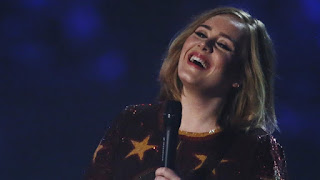Infographic: http://www.unwomen.org/en/what-we-do/peace-and-security/facts-and-figures
Representation: Women make up 50% or more of all state populations.
So, from a purely quantifiable moral standpoint it is only right that they also
represent 50% of decision-making bodies particularly in peace-building
organisations. If women are ‘at the table’ during peace talks they are more
likely to be represented equally in new governmental institutions including
parliaments. Even having women at peace talks lifts up their status in society
and empowers. This means the legacy of the conflict can be greater gender
equality in parliament that will hopefully translate into gender equality in
day-to-day life of women and girls in post-conflict societies. Unfortunately
this translation is easier said than done and it is often not enough to have
some representation of women in peace-processes, at least 30% is necessary for
women to have their voices heard.
Experiences
and Needs: Women often have
extremely different experiences of conflict and therefore it is crucial that
these experiences are enmeshed in peace-building legacy. For example, women who
have been victims of sexual violence in conflict will need particular medical,
social, psychological and even legal aid often not required by male victims of
violence. Given the stigma surrounding rape and sexual assault in many civil
war ridden states, re-integrating victims of sexual violence faces specific
challenges because a woman may be shamed or even extradited into poverty by
members of their community. Victims of sexual trauma may have even more extreme
situations to deal with particularly if they have been forcefully impregnated
and given birth to a child. This will increase their difficulty recovering and
re-integrating because they have a constant living reminder of their trauma: a
child they are responsible for. Women who understand these traumas must be
involved in peace-building processes so that they can insist upon decent
after-care for both women who have been victims of sexual violence, and
children born of these assaults. It is also important that women and men have
the space to tell their stories and experiences of conflict so that a linear
narrative of the truth exists that cannot be politically hijacked or reignite
tensions.
Gender
Justice & Transformative Opportunities: Civil war is evidently atrocious and detrimental for society. However,
afterwards there often opens up a space for change in society particularly for
the rights of women and girls. In the process of rebuilding a society changes
can be made to unequal gender relations including integrating women into the
labour market, getting girls into education, reducing economic inequality and
re-writing laws which render women inferior to their male counterparts. The
rights of women and girls can be enshrined in constitutional reform and again
this aids a transformation of society towards greater equality.
For a more specific example of how women’s
involvement in peace processes see this Huff
Post article about women’s involvement in the Syria peace talks.









